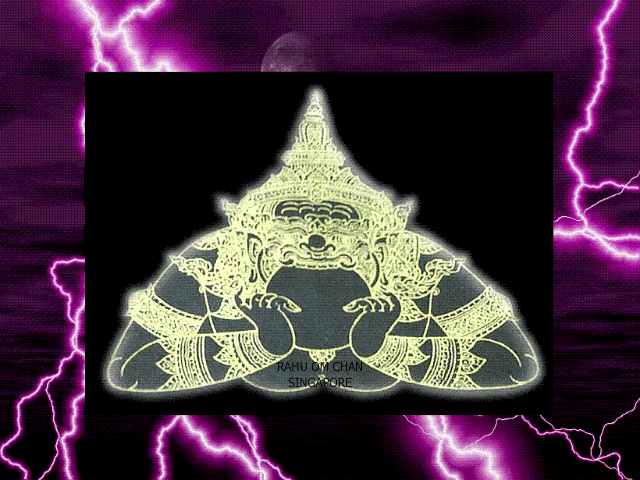Those who have a good heart or sympathy for other people are blessed with their own virtues. Some of these virtues include perseverance, industriousness, strength and benevolence. Since these people are not arrogant, they stand to be loved or receive help from those around them.
The gentle will receive love and help from others. Gentleness is the personal magnet of a virtuous person. If you retain the virtues, they will help you achieve your goals anytime, in the present and the future.
Give what you want
You must remember that if you would like to receive kindness (metta) and sympathy from others, you should extend kindness and sympathy to them, too. Then you'll get kindness and sympathy in return. This is the law of the powerful spirit. If you do this, all of the success you aspire to will be achieved, without a doubt.
A state of elation
Avoid the words "not feeling well". Don't allow what they mean to happen to you. Let it go and get it out. Even before "not feeling well" happens to you, let it go. If you are not careful, it could make its way into your feelings again. Then you must get it out. Don't let the idea of not feeling well remain in your mind, because you'll get used to it. If you do, you will become a weak person, and whenever there are any small mistakes, you will not feel well. This "not feeling well" is the enemy and the devil. It stirs your mind, making the nerves and brain work abnormally. The body will function in an abnormal way. Before we do anything, or while we're doing something, we must feel good after finishing it. Our mind or spirit must be in a state of elation. This will boost the body and the mind. We have to enjoy living.
Peace
The Lord Buddha teaches that peace is real happiness. We may find happiness by watching a play or a movie, socialising with others, being in love and getting married or receiving honours, but these kinds of happiness are marred by other suffering that need to be tackled constantly or alleviated. This is unlike happiness that is gained from peace or serenity, which is an in-depth happiness without any interference from suffering and without any need of further improvement.
This happiness can be realised in a very simple way - with our mind. When we're in a quiet corner, we can also have peace. If we live in a social environment, we can have happiness by separating our mind to search for peace. Although the social environment is troublesome, it can't bother our mind.
When we suffer from physical pain, we can strive for peace of mind, and then the physical pain cannot make us suffer. When the mind is at peace, the body will also be at peace. All suffering will disappear.
A peaceful mind is needed to support a peaceful body, and a peaceful body is needed to support a peaceful mind. Both a peaceful body and a peaceful mind are needed to attain all the success that you wish for.
Be grateful for mistakes
We must remind ourselves that "to do no wrong is to do nothing!" Mistakes are our great teacher. We have to be grateful to ourselves whenever we realise we have done something wrong. And we should feel good when we have met a great teacher, which is the mistake. When we make a mistake, we must remember it well. This is a good example, so that we won't do it again. We can then start again by avoiding carelessness.
Conscience is immortal
We will do no wrong if we have a conscience. The conscience protects our body, our speech and our mind at every moment. If we get it wrong, it means that we do not have a conscience, allowing carelessness to get out of control.
It is the natural way that human beings and animals and other plants fight for their life. Life is fighting. If we can't continue to fight, we're dead. But if we have a full conscience, then when we die, death will only happen to our body. The Lord Buddha and other enlightened monks had a full conscience at every moment. Therefore, they never did anything wrongly. They attained the immortality of dharma, or dharma that would never perish. We can also call this state nirvana.
The three guides
With the power of the trisikkha: sila (precepts), samadhi (insight) and panya (wisdom), we can win over our enemy, which is desire.
We can win over the rudeness, which represents an ugly desire in the lowest form and encroaches over our body, our speech and our mind with sila. We can win over love or hatred or passion, which represents a desire in medium form with samadhi. We can win over understanding, knowing what is right and wrong or the reality of the body, which is the finest desire, with panya. Those who have studied and practised trisikkha thoroughly and completely will transcend all suffering.
Good deeds are their own reward
We must do only good deeds. When we do good deeds but don't receive any blessing, it is still good. If we do bad deeds, we can't become good from fake blessings. Doing bad is like throwing a stone into the water. The stone will sink immediately to the bottom. Nobody can make the stone float. The bad deed will result in disaster and calamity like the stone sinking into the mud under the water.
Good deeds will bring honour, dignity and fame. Other people will respect us. Although our enemies would like to harm us, they can't, because they will suffer their own defeat. Please aim for the good deeds without fear of any obstacle. Let those who have faith in the Three Gems have luck and happiness and achieve what they set out to do.
We only have a few days
Jasmine is known as the most fragrant, the whitest and the purest of all flowers. Life is like acting in a theatre. We should aim at being the main character with the character of the jasmine. Don't be the bad guy. The jasmine will blossom for only a couple of days before it dies. Let us behave ourselves in the best way while we're still alive, like the blossomed jasmine. Do only good deeds.
胡


No comments:
Post a Comment